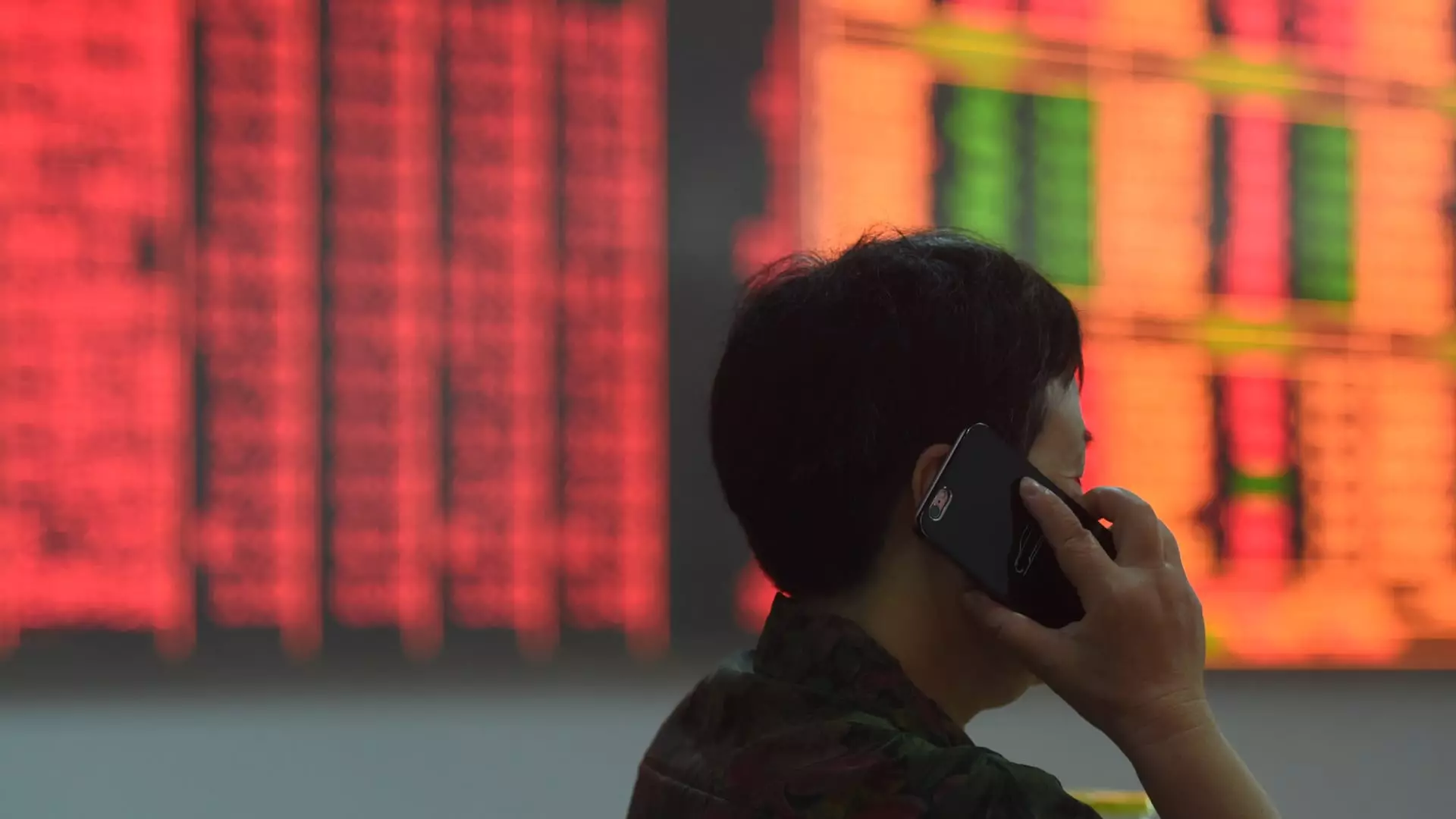China’s economic environment is under scrutiny as it grapples with mounting difficulties, primarily stemming from a prolonged slump in the real estate sector. Recently, a Politburo meeting, presided over by President Xi Jinping, has reignited discussions about economic policy, resulting in a positive market reaction. However, the gap between governmental strategies and the actual socio-economic landscape raises questions about the efficacy of these policies in addressing deeper systemic issues.
On a notable Thursday, the Shanghai Composite Index surged to a three-month high following news of Xi’s convening a high-level meeting to discuss economic recovery. The intent behind this gathering appears to be an acknowledgment of the gravity of current economic challenges, particularly in halting the decline in the property market. While the announcement signified a commitment to reinforce fiscal and monetary policies, it lacked substantial details. Analysts, such as Ting Lu from Nomura, underscore that the effects of such news are often transient. The ‘shock and awe’ tactic could stimulate immediate market activity but does little to rectify deeper problems unless coupled with comprehensive, coherent policies.
The underlying economic data paints a troubling picture. Growth has softened significantly, with retail sales and industrial profits failing to show robust performance, reflecting the broader malaise within the economy. The real estate market, which has seen four years of contraction, remains a focal point for policymakers, with many experts advocating for a stabilization strategy. However, as Lu points out, any additional stimulus measures are unlikely to exceed a mere 3% of China’s annual GDP, marking a cautious approach towards economic revitalization.
In recent developments, the People’s Bank of China has opted for cuts in key interest rates, aiming to alleviate burdens on existing mortgage holders. Nevertheless, experts remain skeptical about the real impact of these measures. Wells Fargo’s Paul Christopher notes a pervasive lack of consumer confidence; potential borrowers remain hesitant despite attractive borrowing costs. This sentiment poses a significant obstacle in mobilizing economic activity, raising concerns that these policies may fall short of catalyzing desired growth.
Although the government has introduced measures intended to stimulate economic activity, the slow recovery of confidence amongst consumers and businesses is evident. A recent survey conducted by the China Beige Book reveals a decline in corporate borrowing, even as interest rates hit historical lows. This paradox highlights an overarching issue: even with favorable economic incentives, entrenched fears about financial stability continue to stifle economic momentum.
In addition to monetary policy adjustments, the Chinese government has started to shift its approach towards sectors that were previously under stringent regulatory scrutiny, such as real estate and education. The easing of restrictions is a clear attempt to restore market confidence, but whether these changes will lead to an enduring rebound remains uncertain. The long shadow cast by recent crackdowns has left businesses and consumers wary, inhibiting spontaneous recovery across affected sectors.
Despite the immediate surge in stock prices, analysts advise caution. Proponents like Shehzad Qazi from the China Beige Book recognize the possibility of a temporary ‘wealth effect’ from rising equities. However, they caution that these benefits are overshadowed by the profound weaknesses in the property market. The anticipated marginal recovery in retail sales over the coming months may not suffice to compensate for longer-term structural issues, particularly if governmental action remains slow or uncoordinated.
Global Implications and Investor Sentiments
The recent shifts in China’s economic policy and accompanying market reactions have resonated on a global scale, drawing attention from international investors. Hailed by some as a significant pivot in favor of capital markets, these developments may possess the potential to reshape perspectives towards China’s economic framework. Furthermore, the coinciding moves by the U.S. Federal Reserve towards easier monetary policy may afford the People’s Bank of China more leeway in adjusting its rates.
Investors, including billionaires like David Tepper, are taking note of these developments, with notable enthusiasm for purchasing Chinese stocks following the government’s signals of support. Bruce Liu, an asset manager, also highlights the vital nature of capital markets for sustained economic growth. Despite the inherent risks, the momentum around Chinese equities illustrates a broader optimism, albeit marked with caution about implementation and effectivity of new policies.
While recent policy indications from Beijing have initiated palpable shifts in market sentiment, the efficacy of these measures in addressing the fundamental economic challenges remains in question. The road ahead will require sustained efforts to not only stabilize key sectors like real estate but also to rebuild consumer and business confidence. Whether these changes will result in lasting recovery or merely serve as temporary relief will depend significantly on the government’s ability to implement well-thought-out policies alongside reactive measures. The global community watches closely, recognizing that the future of the world’s second-largest economy is intricately linked to its policymaking choices today.

